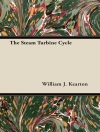The challenge of creating a real-life computational equivalent of the human mind requires that we better understand at a computational level how natural intelligent systems develop their cognitive and learning functions. In recent years, biologically inspired cognitive architectures have emerged as a powerful new approach toward gaining this kind of understanding (here “biologically inspired” is understood broadly as “brain-mind inspired”). Still, despite impressive successes and growing interest in BICA, wide gaps separate different approaches from each other and from solutions found in biology. Modern scientific societies pursue related yet separate goals, while the mission of the BICA Society consists in the integration of many efforts in addressing the above challenge. Therefore, the BICA Society shall bring together researchers from disjointed fields and communities who devote their efforts to solving the same challenge, despite that they may “speak different languages”. This will be achieved by promoting and facilitating the transdisciplinary study of cognitive architectures, and in the long-term perspective – creating one unifying widespread framework for the human-level cognitive architectures and their implementations.
This book is a proceedings of the Third Annual Meeting of the BICA Society, which was hold in Palermo-Italy from October 31 to November 2, 2012. The book describes recent advances and new challenges around the theme of understanding
how to create general-purpose humanlike artificial intelligence using inspirations from studies of the brain and the mind.
Содержание
Back to Basics and Forward to Novelty in Machine .- Characterizing and Assessing Human-like behavior in Cognitive.- Architects or Botanists? The relevance of (neuronal) trees to model.- Consciousness and the Quest for Sentient.- Biological uctuation /Yuragi’ as the principle of bio-inspired.- Active learning by selecting new training samples from unlabelled.- Biologically Inspired Beyond Neural. Bene ts of Multiple Modeling Levels.- Turing and de Finetti Ganes.- Machines making us.












